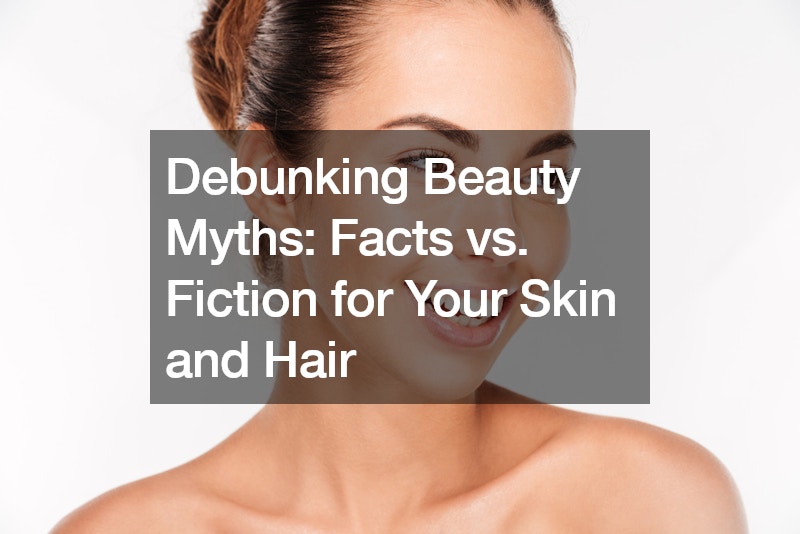In the world of beauty, myths and misconceptions are rampant. Many of us follow routines and avoid certain products based on hearsay rather than factual information. It’s time to set the record straight on some common beauty myths. Here’s a comprehensive look at the truth behind these myths and how you can optimize your beauty regimen.
Myth 1: Silk Pillowcases Are No Different Than Cotton
Fact: Silk pillowcases are significantly better for your hair and skin compared to traditional cotton ones. Silk fibers are similar in structure to human hair, which helps keep your hair smooth and reduces breakage.
Unlike cotton, which can be rough and tug at your hair, silk allows your hair to glide over the pillowcase, minimizing split ends and maintaining the integrity of the hair shaft.
For your skin, silk pillowcases are less absorbent than cotton. This means they won’t soak up your skincare products or natural oils, ensuring your skin remains hydrated throughout the night. Additionally, silk is hypoallergenic, naturally resisting dust mites, mold, and other allergens, making it an excellent choice for those with sensitive skin or allergies.
Myth 2: Alcohol in Skincare Is Always Bad
Fact: While it’s true that some alcohols can be drying, not all alcohols are harmful to your skin. In well-formulated products, certain alcohols help increase the penetration of key ingredients. Fatty alcohols, such as cetyl and stearyl alcohol, are non-irritating and can be very beneficial. They act as emollients, helping to soften and smooth the skin.
Before dismissing a product with alcohol on its ingredient list, it’s essential to understand the type of alcohol and its function. Properly researched and balanced, alcohols in skincare can enhance product performance without causing harm.
Myth 3: Dimethicone Clogs Pores
Fact: Dimethicone, a common ingredient in silicone-based makeup primers, has been accused of suffocating the skin and causing breakouts. However, this is a myth. Dimethicone is breathable and primarily helps to prevent water loss from the skin. It creates a smooth, even surface that can extend the wear time of makeup without clogging pores.
Studies have shown that dimethicone has an incredibly low allergic reaction rate, making it safe for everyday use. If you’ve avoided silicone-based primers due to this myth, it’s time to reconsider. These products can provide a flawless makeup base without compromising skin health.
Myth 4: Shaving Makes Hair Grow Back Darker and Thicker
Fact: This is a common misconception. Shaving does not alter the thickness, color, or growth rate of hair. When you shave, the hair is cut off at the surface, leaving a blunt tip. As this tip grows out, it may feel coarser and appear darker, but this is simply because it hasn’t yet tapered off naturally.
In contrast, waxing can lead to hair growing back finer and thinner over time because it removes hair from the root, potentially damaging the follicle. So, if you’ve been avoiding shaving certain areas out of fear of thicker regrowth, rest assured this isn’t the case.
Myth 5: Oily Skin Doesn’t Need Moisturizer
Fact: Oily skin needs moisturizer just as much as dry skin does. Stripping your skin of natural oils with harsh cleansers can cause your skin to overcompensate by producing even more oil. The key is to use a water-based, hydrating product containing ingredients like hyaluronic acid, which helps maintain moisture without adding oil.
Layering a water-based hydrator under a light, oil-free moisturizer can help balance your skin’s oil production, keeping it healthy and hydrated. Properly moisturizing oily skin can reduce the overall oiliness and prevent the vicious cycle of overproduction.
Myth 6: You Need a Special Eye Cream
Fact: While the skin around your eyes is thinner and more delicate than the rest of your face, you don’t necessarily need a separate eye cream. If your regular moisturizer contains beneficial ingredients and is gentle, it can be applied to the eye area as well.
The critical aspect is the formulation of your moisturizer. If it is hydrating and contains ingredients that help with fine lines and puffiness, such as peptides and antioxidants, it can work just as well around your eyes. That said, if you have specific concerns like dark circles or severe puffiness, specialized eye creams formulated to address these issues may offer additional benefits. Consulting with an aesthetic doctor can also provide personalized advice and treatments for more persistent issues.
Myth 7: Pores Can Be Permanently Shrunk
Fact: Unfortunately, you cannot permanently shrink your pores. Pores may appear larger or smaller due to various factors like temperature changes or clogging. However, these effects are temporary. The best way to minimize the appearance of pores is to keep them clean and free of congestion.
Using products that contain beta hydroxy acids (BHAs) can help. BHAs, like salicylic acid, penetrate the pores and help clear out debris and oil, making pores appear smaller. Consistent use of these exfoliants can improve skin texture and reduce the appearance of enlarged pores.
In conclusion, understanding the facts behind these beauty myths can significantly improve your skincare and haircare routines. Don’t let misconceptions guide your choices—research and embrace what truly works for your unique beauty needs.
.






